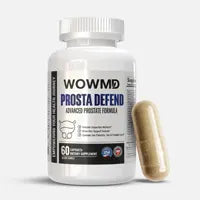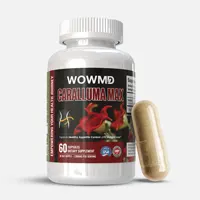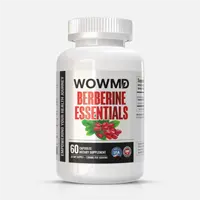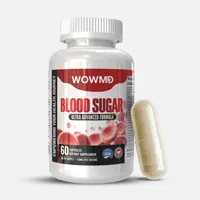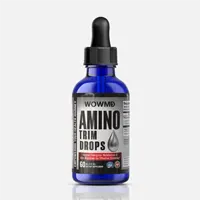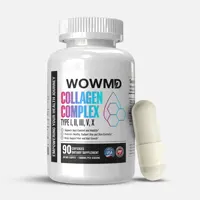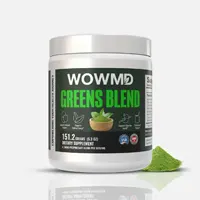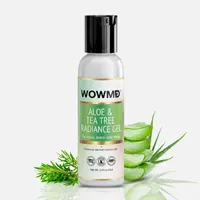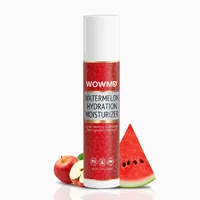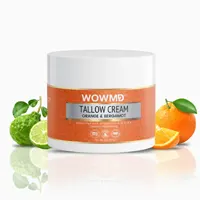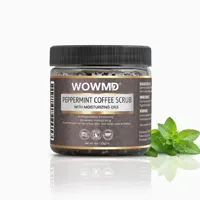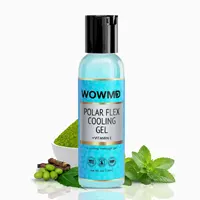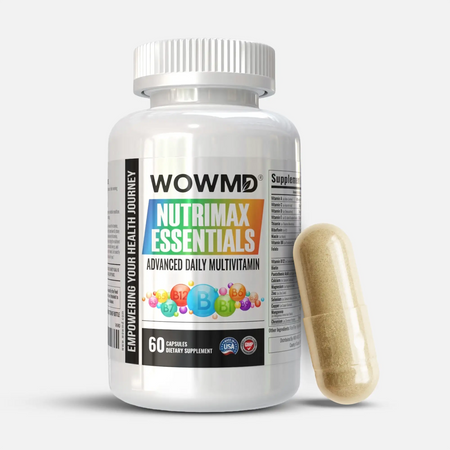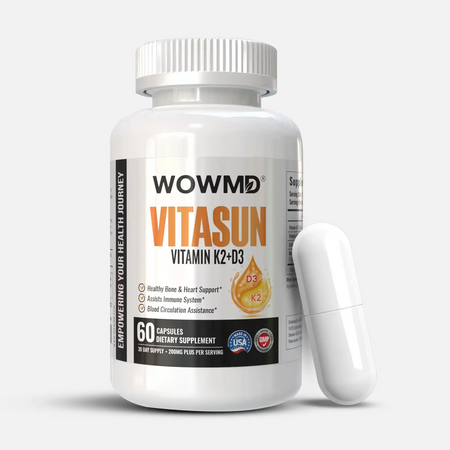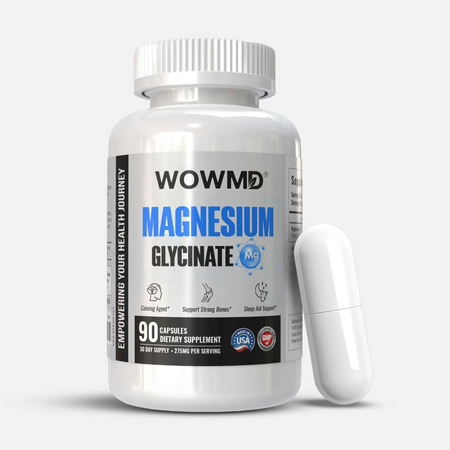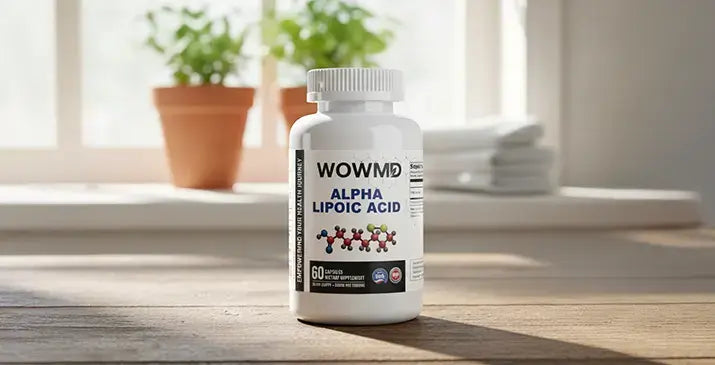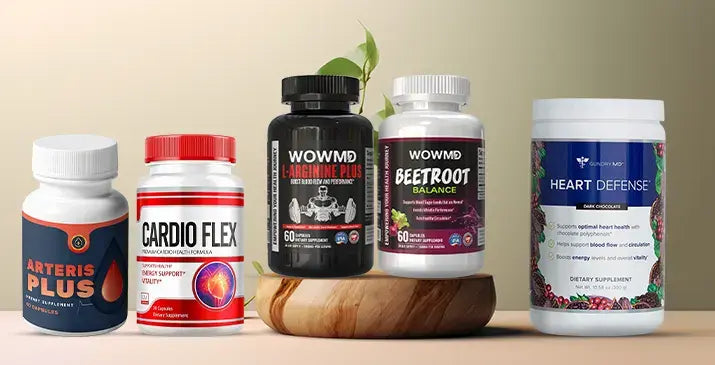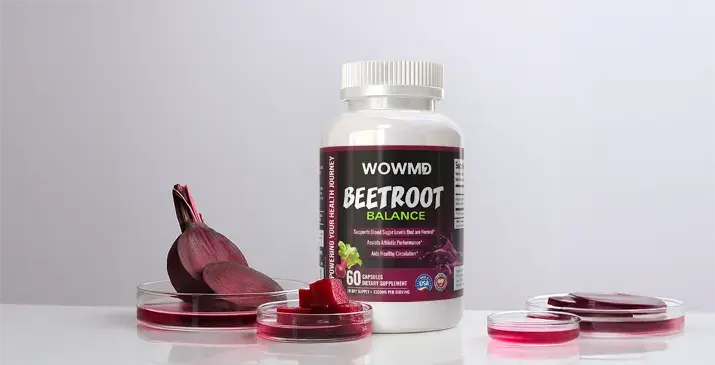What Vitamins Shouldn’t Be Taken Together?
Vitamins can play an important role in your overall wellness routine, but some vitamins shouldn’t be taken together. Let’s take a look at what vitamins should or shouldn’t be taken together.
Advertiser Disclosure: WOWMD independently vets all recommended products. If you purchase a featured product, we may be compensated. Learn why you can trust us.
You May Also Like
Popular Stories
- The Best Beef Tallow Products for Radiant Skin: A 2026 Guide
- Holy Basil : Ayurveda’s Herb for Balance, Immunity & Everyday Calm
- Best Gel Moisturizers for Hydration & Skin Care in 2026
- 7 Best Effective Supplements for Improving Bladder and Prostate Health in 2026
- 4 Best Cooling Gels for Skin and Body: Instant Refreshment and Relief
- 4 Best Hyaluronic Acid Serums for Skin Hydration - Tested & Reviewed
References
WOWMD follows strict sourcing guidelines to ensure the accuracy of its content, outlined in our editorial policy. We use only trustworthy sources, including peer-reviewed studies, qualified experts, and information from top institutions.
- Effect of Zinc Supplementation on Copper Status in Adult Men: https://pubmed.ncbi.nlm.nih.gov/6486080/
- Interaction of Vitamin C and Iron: https://pubmed.ncbi.nlm.nih.gov/6940487/
- Destruction of Vitamin B12 by Ascorbic Acid: https://www.semanticscholar.org/paper/Destruction-of-vitamin-B12-by-ascorbic-acid.-Herbert-Jacob/de81db5ab7f5e0c4f7bacf522ef4a88b95993012
- Dietary Vitamin B Complex: Orchestration in Human Nutrition throughout Life with Sex Differences: https://pmc.ncbi.nlm.nih.gov/articles/PMC9573099/
- Magnesium Status and Supplementation Influence Vitamin D Status and Metabolism: Results From a Randomized Trial: https://ajcn.nutrition.org/article/S0002-9165(22)03058-1/fulltext
- A Combination of High-Dose Vitamin C Plus Zinc For the Common Cold: https://pubmed.ncbi.nlm.nih.gov/22429343/


 Alpha Man Power Pack
Alpha Man Power Pack All-Day Fat Burn Trio
All-Day Fat Burn Trio Better Immunity Bundle
Better Immunity Bundle  Calm & Sleep Duo
Calm & Sleep Duo Cognitive Health & Vision Combo
Cognitive Health & Vision Combo Complete Weight Loss Bundle
Complete Weight Loss Bundle Core Vitality Trio
Core Vitality Trio Energy Booster Combo
Energy Booster Combo Focus Fuel Trio
Focus Fuel Trio Glow & Balance Duo
Glow & Balance Duo Health Balance Trio
Health Balance Trio Heart Care Bundle
Heart Care Bundle Joint Health Support Combo
Joint Health Support Combo Men's Immunity & Prostate Health Bundle
Men's Immunity & Prostate Health Bundle Metabolism Boost Duo
Metabolism Boost Duo Natural Skin Care Bundle
Natural Skin Care Bundle Peak Performance Duo
Peak Performance Duo Relax & Recharge Duo
Relax & Recharge Duo Skin Detoxification Bundle
Skin Detoxification Bundle Smart Energy Trio
Smart Energy Trio Stress + Energy + Wellness Combo
Stress + Energy + Wellness Combo  Total Burn Ignite Trio
Total Burn Ignite Trio Total Harmony Pack
Total Harmony Pack Workout Supplements Combo
Workout Supplements Combo
